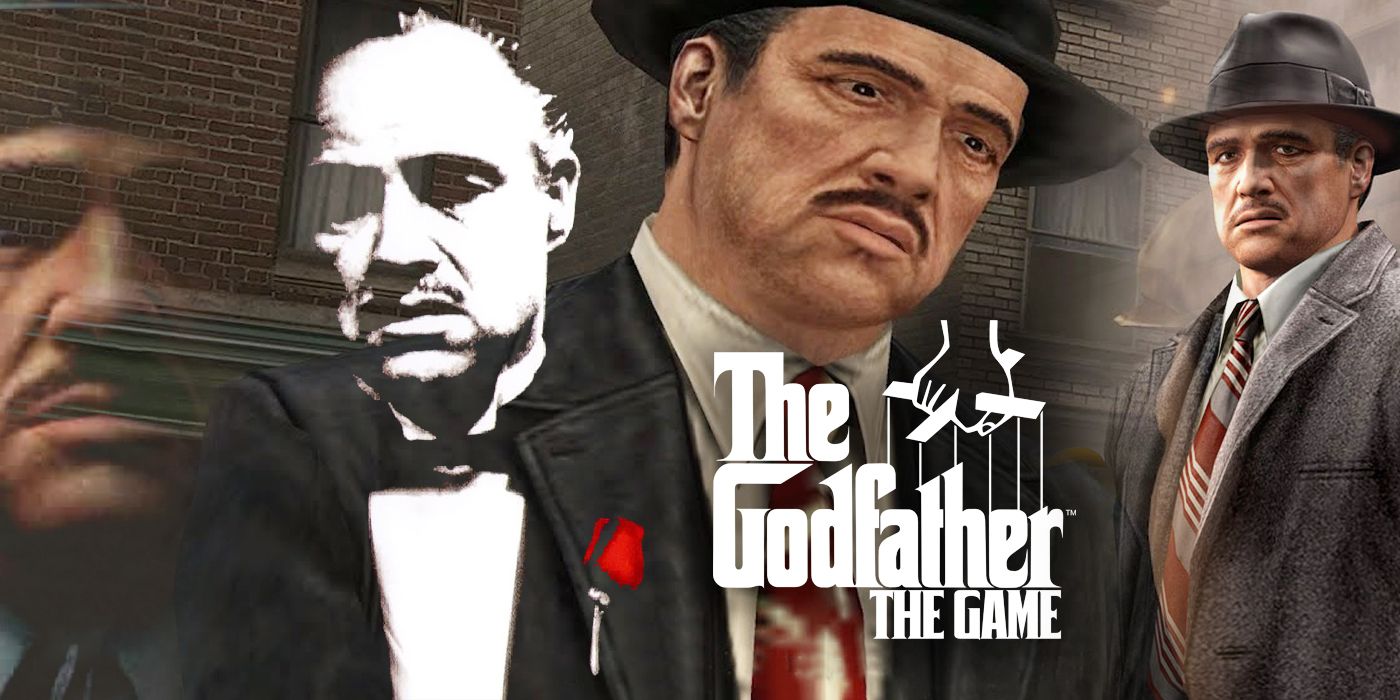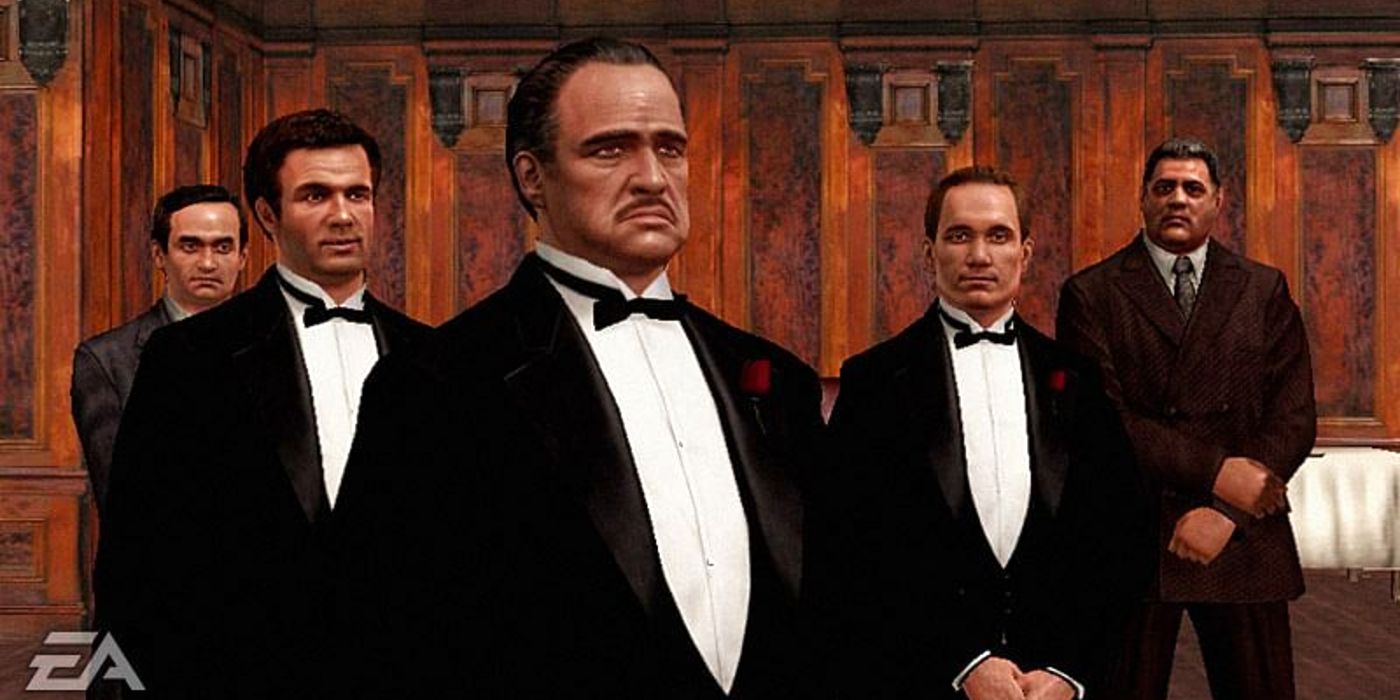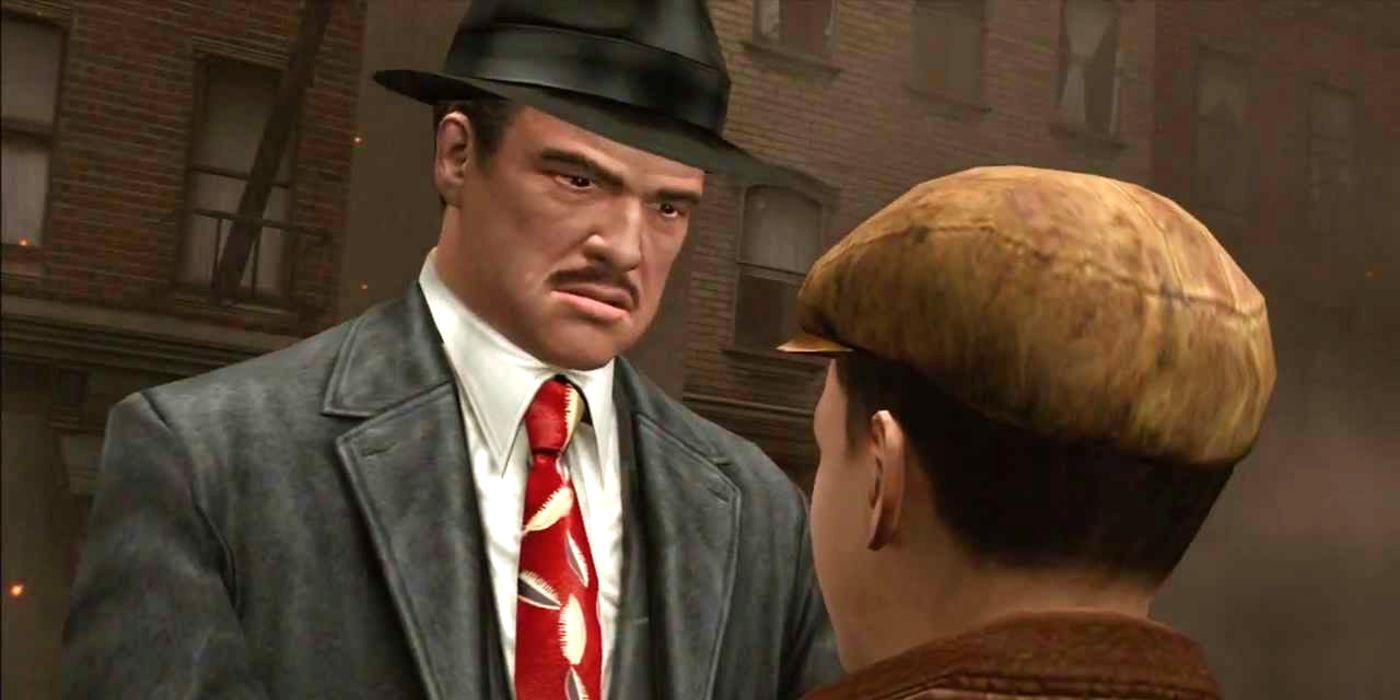Released in 1972, Francis Ford Coppola’s mafia epic The Godfather remains undoubtedly one of the greatest films ever made. Starring Marlon Brando, Al Pacino, James Caan, and Robert Duvall, The Godfather is a complete masterclass when it comes to acting, screenwriting, cinematography, and directing. Almost 50 years later, the film is still considered by many to be the gold standard of filmmaking.
Some 32 years later, EA announced that it was developing a video game adaptation of The Godfather in 2004. The game then entered a two-year development cycle during which EA were able to obtain the services of Caan and Duvall, who both reprised their roles as Sonny Corleone and Tom Hagen respectively. Pacino denied the game’s developers request to use his likeness in the video game adaptation, instead opting to give it to Radical Entertainment who were developing an adaptation of their own with Scarface: The World is Yours. Despite not being able to recreate one of more central figures of the Godfather saga with exact precision, EA were able to procure the services of Marlon Brando to reprise the iconic role of Don Vito Corleone.
The Godfather video game would ultimately be released on March 21, 2006, following a created player (canonically named Aldo Trapani) as he climbs the ranks of the Corleone Family during their war with the rival Tattaglia Family. The video game adaptation of the classic film was warmly received by the public at the time of its release, with particular praise being directed towards the game’s combat system, side activities, and faithfulness to the source material.
The voice acting was also noted, with Caan and Duvall’s reprisals both being integral to keeping the player immersed in the game as it recreates iconic moments from the film. One voice, however, seems a bit... off. Though Don Corleone’s voice is pretty close to that of Brando’s original performance, it is quite obviously being done by someone who isn't Marlon Brando. And the reason for that is pretty compelling on its own.
At the stage of the game’s development when it came time to record the voice acting, Brando’s health had taken a real turn for the worse. At almost 80 years old, the legendary actor had gained a ton of weight and was suffering from Type-2 diabetes in addition to a plethora of other health and personal issues. By the time he was needed to record dialogue for The Godfather, Brando’s condition had dramatically worsened and was required to use an oxygen mask at all times. While the game’s developers were able to get some material, most of it was considered unusable due to the recordings picking up sounds coming from Brando’s oxygen tank in addition to his audibly poor health. Moving forward, EA decided to hire voice actor and dialect coach Doug Abrahams (who also voiced three other characters in the game) to voice Don Corelone for the remainder of production. All of Brando’s recorded lines for the game were scrapped. Except for one.
In line with the film, The Godfather features a cutscene where Don Corelone is shot several times by Tattaglia henchmen in an assassination attempt. The player is later tasked with meeting the Don in the hospital. After discovering that virtually every security guard and nurse on duty has seemingly abandoned the hospital and left the Don unprotected, the player character runs into Vito’s son, Michael. Michael tells the player that men are coming to the hospital in an attempt to finish the job and kill the Don before instructing the player to get out before they arrive. The game then instructs the player to kill the Tattaglia assassins in the lower levels of the hospital. However, if the player elects to go the Don’s hospital room door, they can hear Michael consoling his father, assuring him that he’s not leaving him and that everything will be OK. It is then when you are treated to quite possibly the most powerful video game Easter egg ever – an original line of dialogue from Marlon Brando himself.
“You know, it's a lot of foolishness about this Sollozzo business. It's so unfortunate, it's really unnecessary. Gave him my 'no' with common courtesy. I told him his business would not interfere with mine. And uh, he wouldn't take it right. I know the Tattaglia family has brought down misfortune on our own heads.
“Well, that's life. Everybody's got their own tale of sorrow.”
Brando’s voice, muffled behind an oxygen mask, is raspy and weak. There are long gaps in between some words in a single sentence, speaking to the actor's frail state. In character, Brando painfully speaks about Vito’s disappointment with how the Tattaglia Family, as well as their associate Virgil Sollozzo, has tried to assassinate him due to his refusal to help fund their foray into the drug trade.
Considering the circumstances surrounding his recording of the lines and the condition he was in, Brando’s short and hidden reprisal of one of his most iconic roles is hauntingly beautiful and tragically fitting. Here’s Brando, practically on his death bed, recording a tribute to his own magnum opus – a scene where his character is fighting to stay alive. There’s an odd and unsettling irony behind a man who was always considered to be a method actor playing a character who is close to death while dying himself. The reprisal of Don Vito Corleone would ultimately prove to be Brando’s last role - he died on July 1, 2004, shortly after recording his lines and almost two years before the game’s release.
The Godfather’s legacy as an adaptation is a pretty decent one. Even if it wasn’t the greatest game of its time, or even of 2006, it adequately paid homage of the legendary 1972 film while developing a new interactive world around it. But even if the game itself wasn’t anything groundbreaking or spectacular, The Godfather absolutely deserves credit for being Marlon Brando’s swan song – the final performance of one of the greatest artists Hollywood has ever produced.



